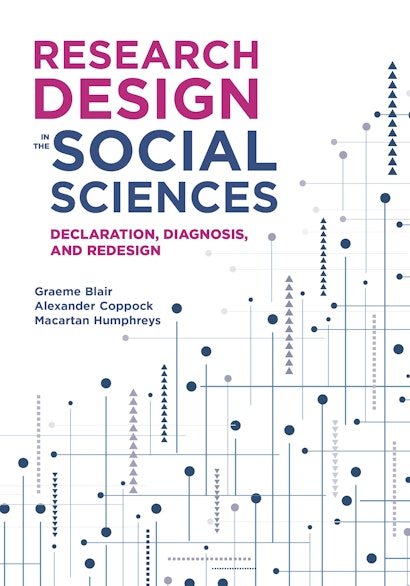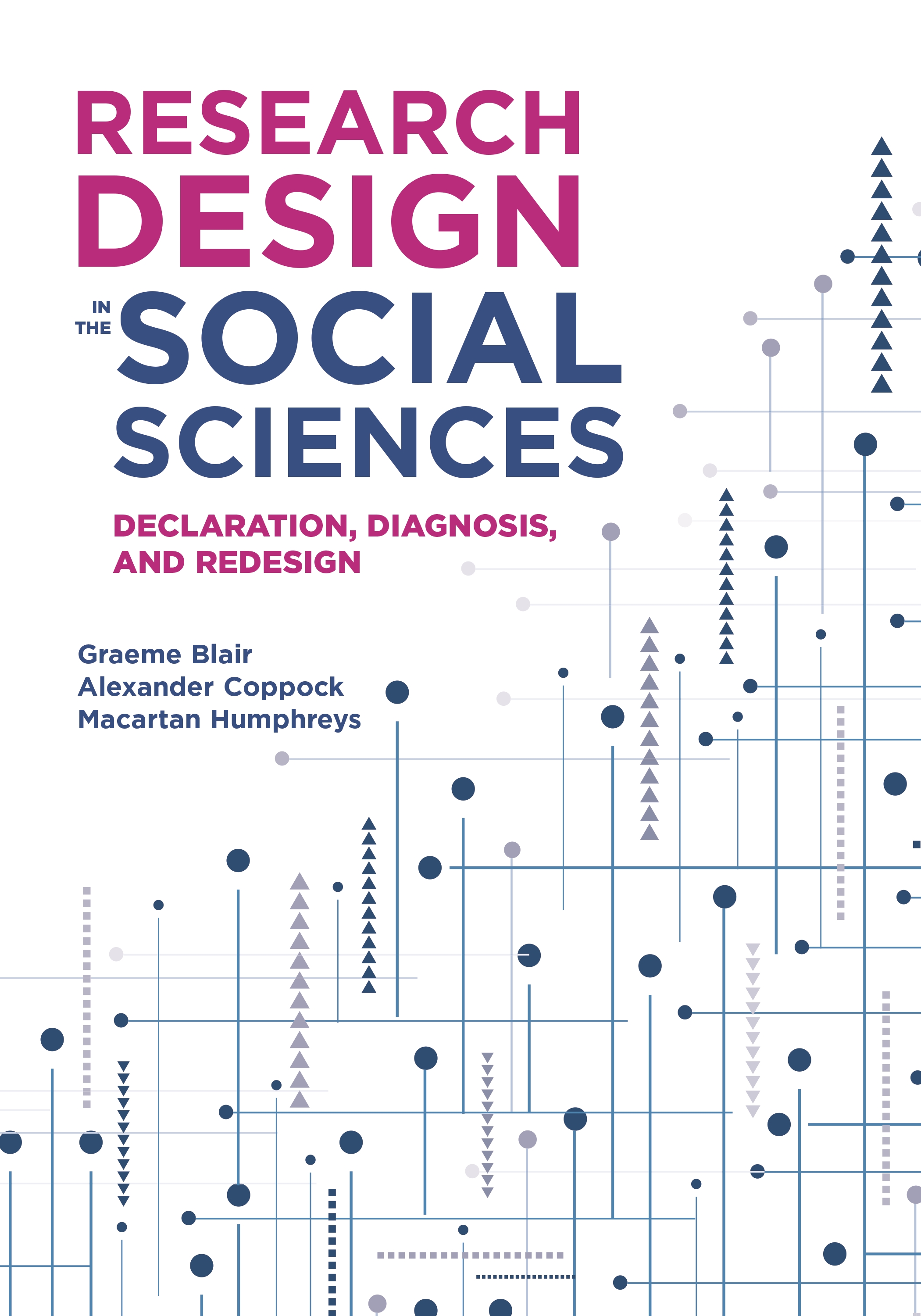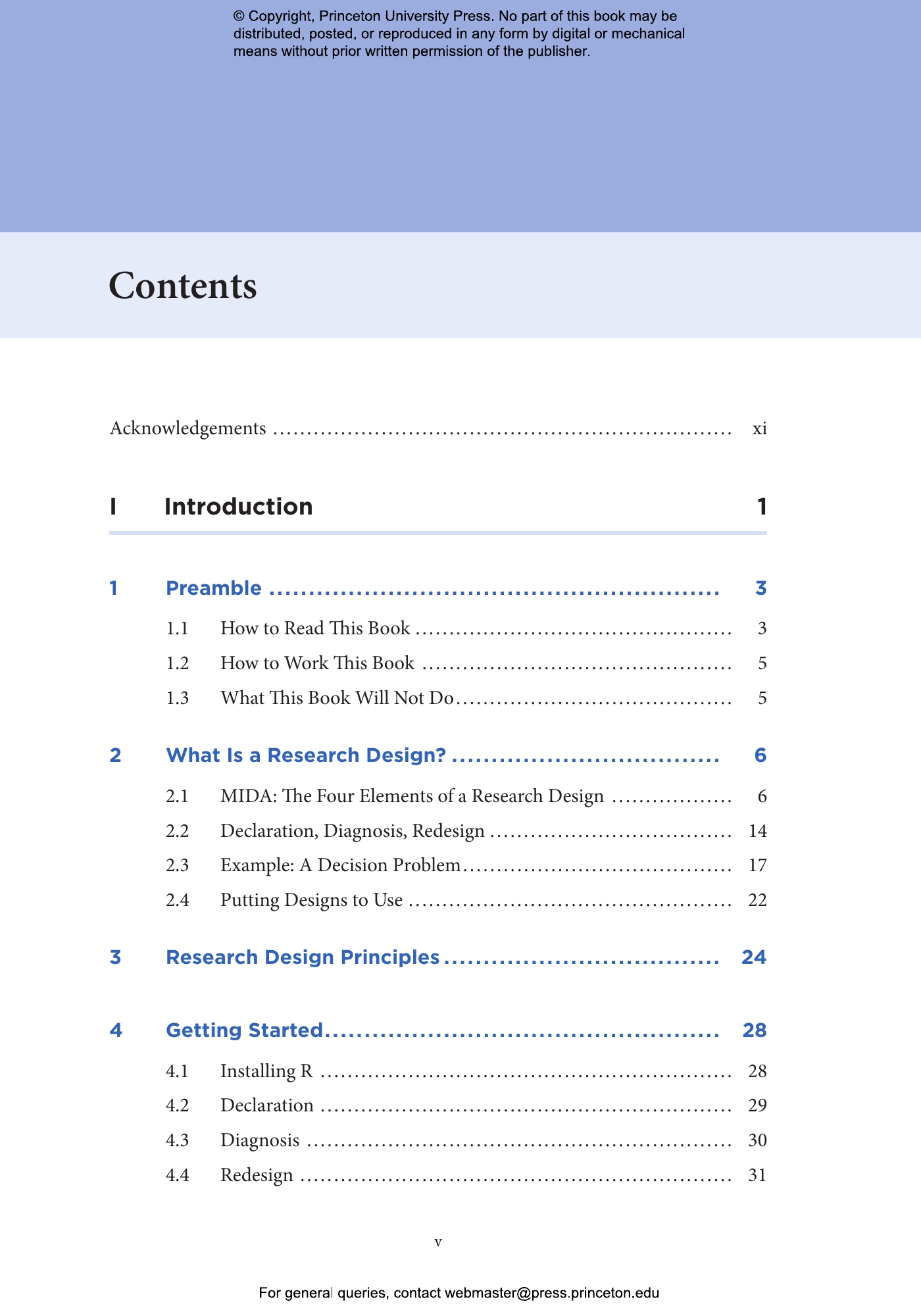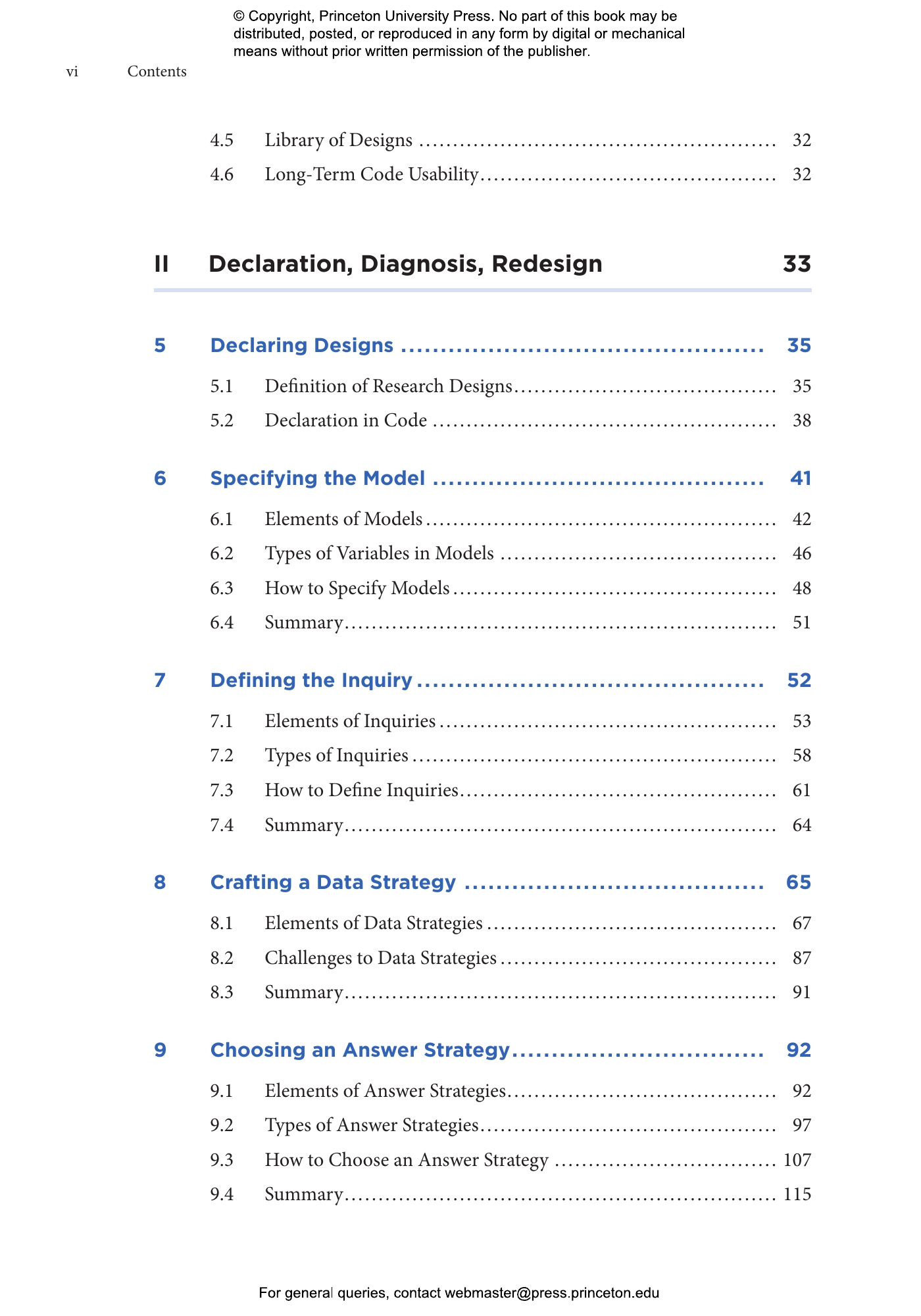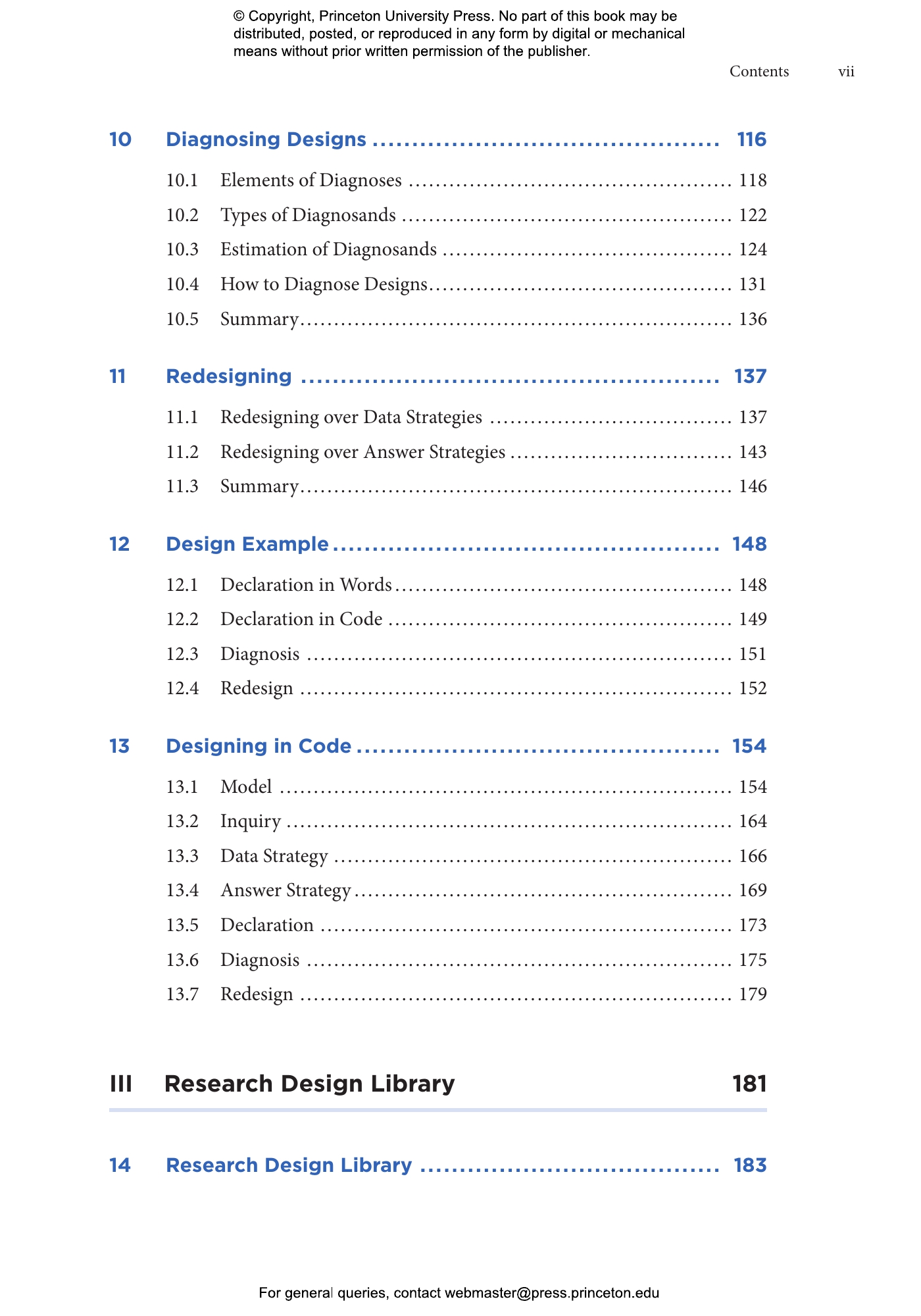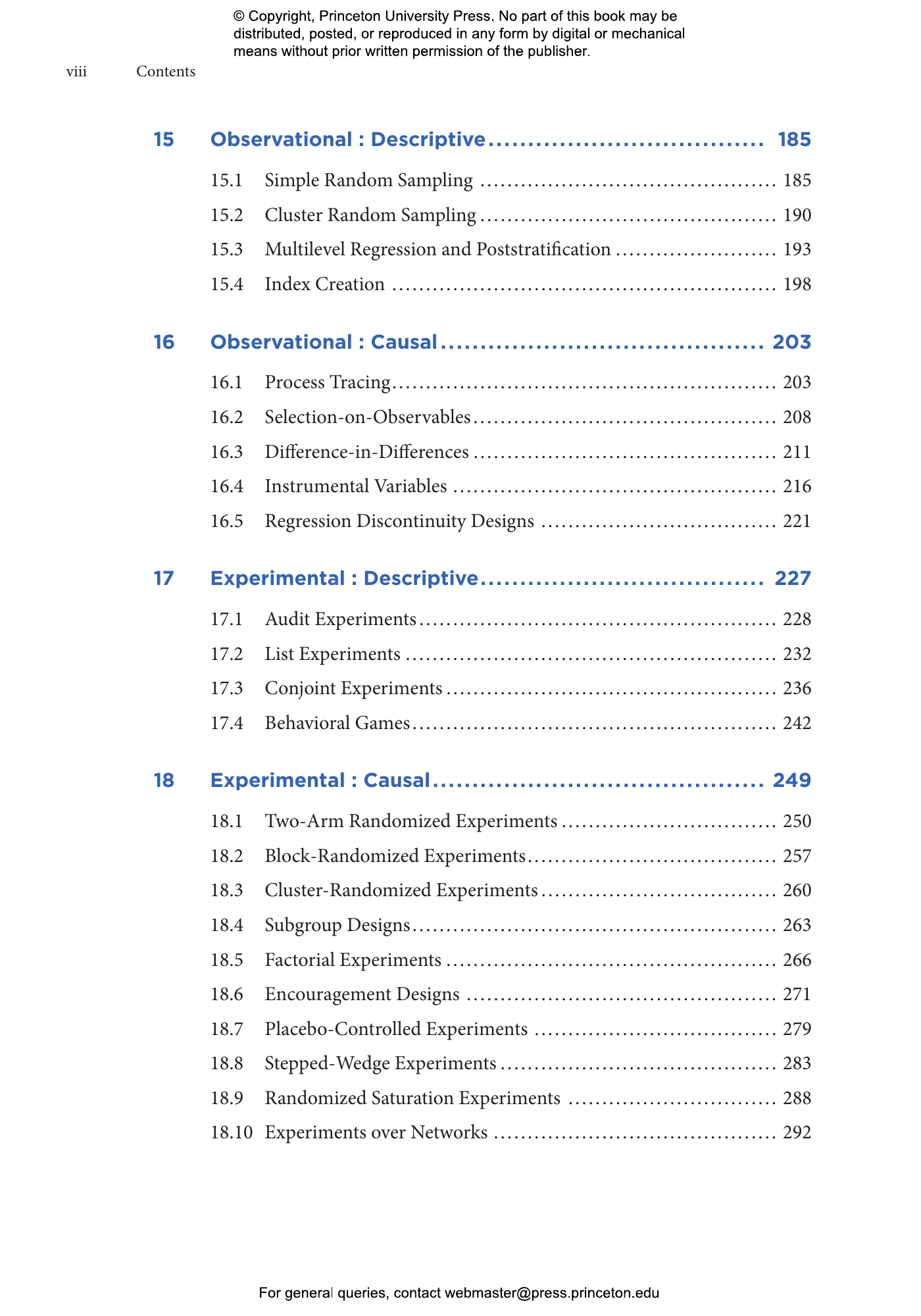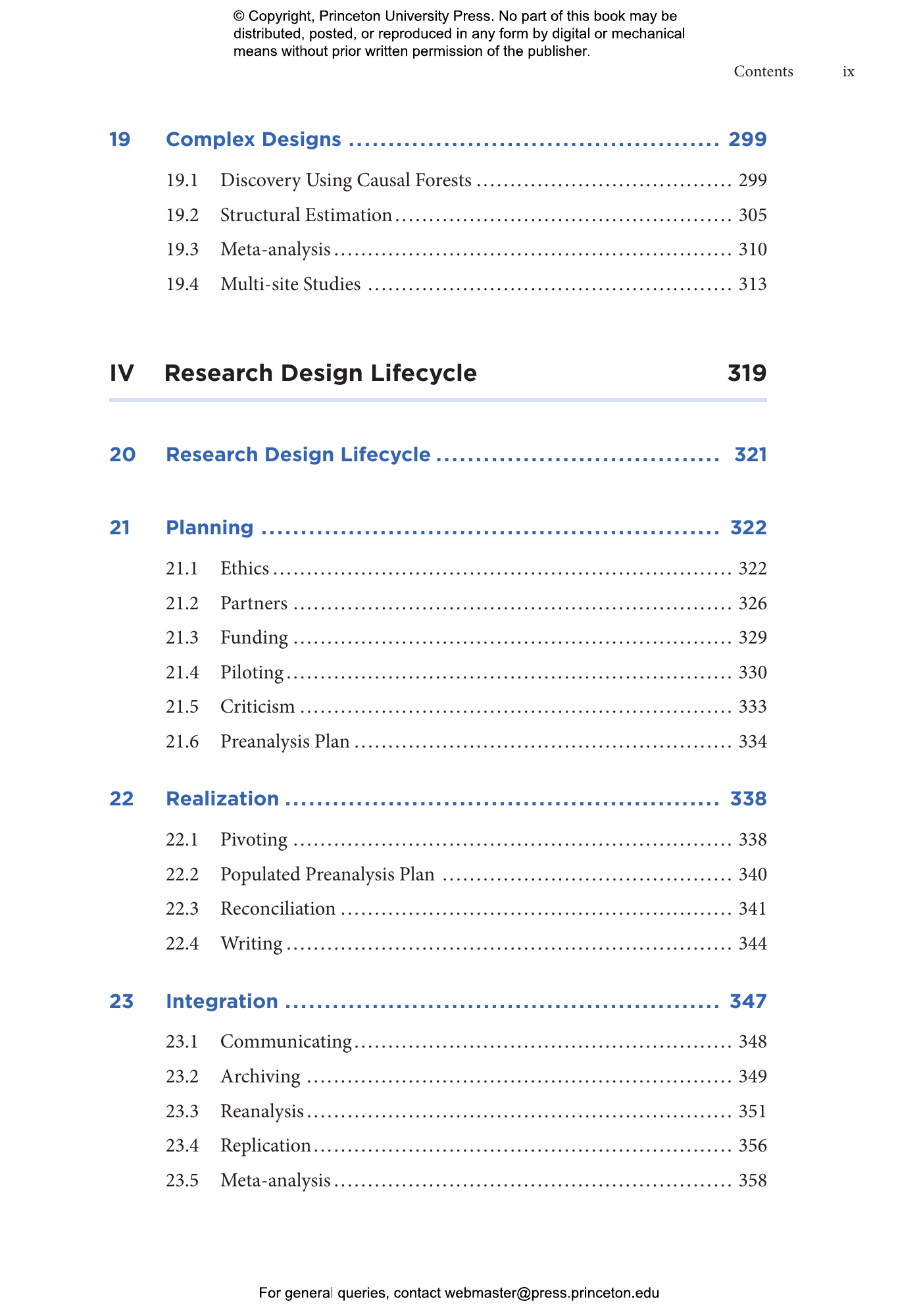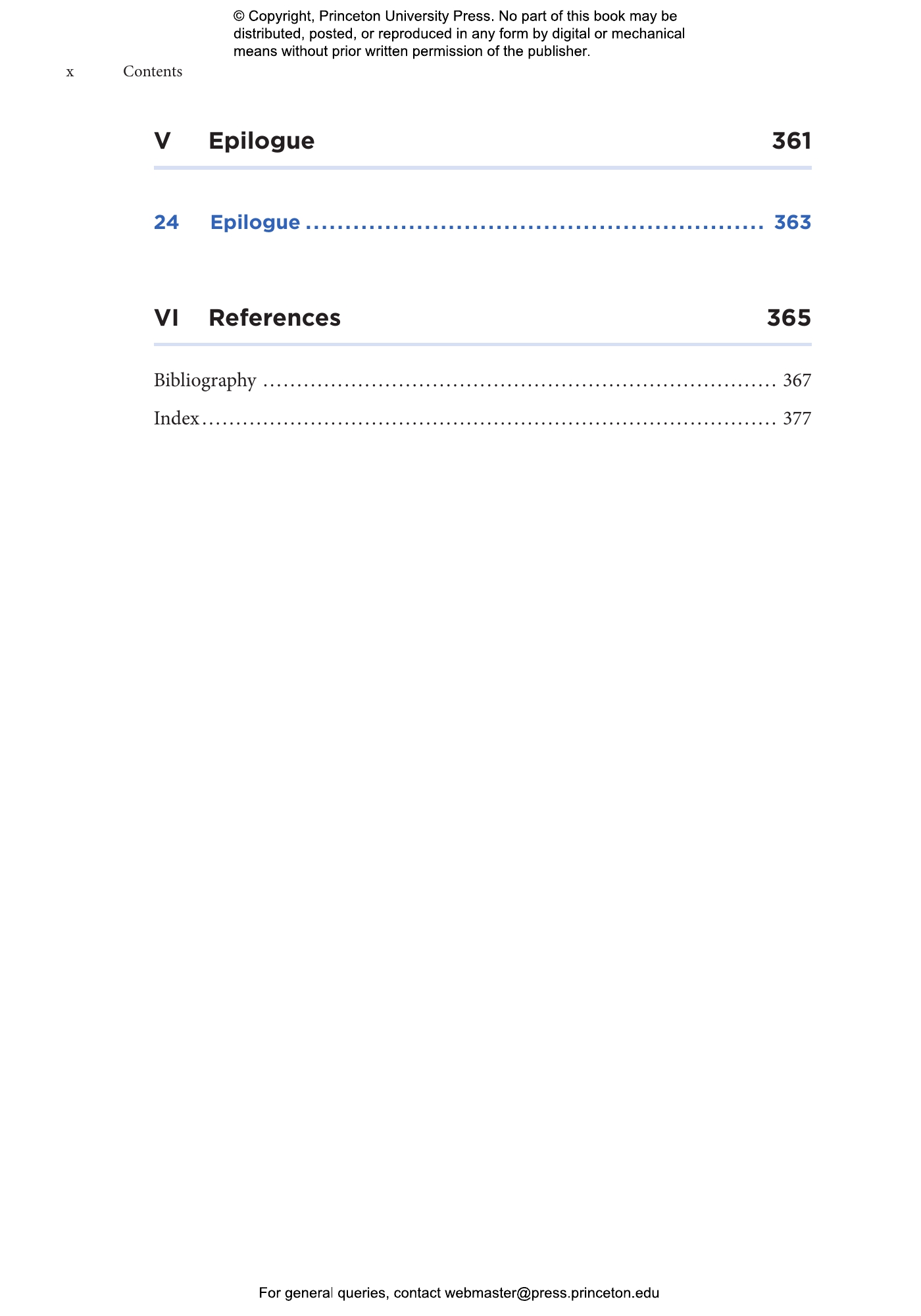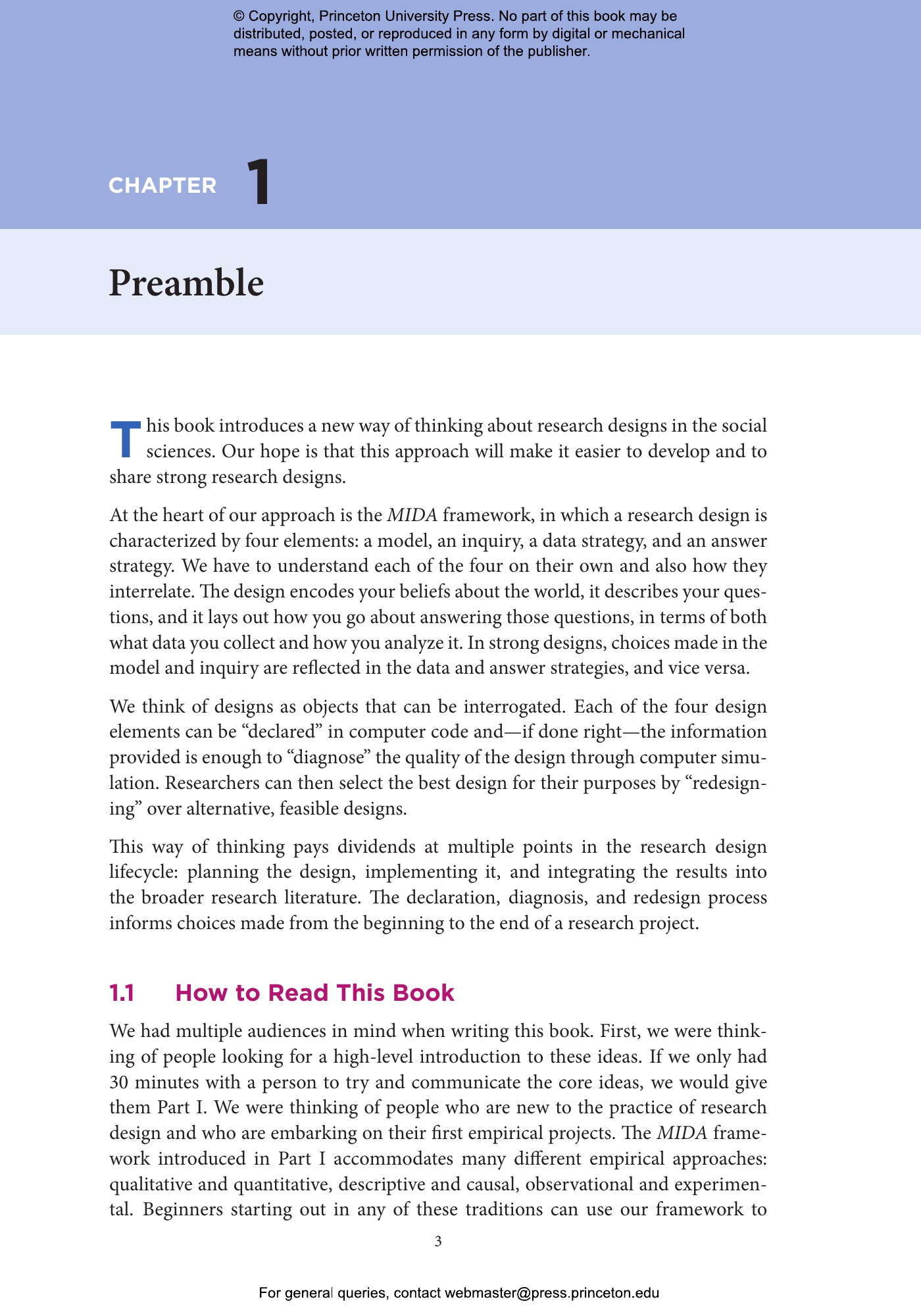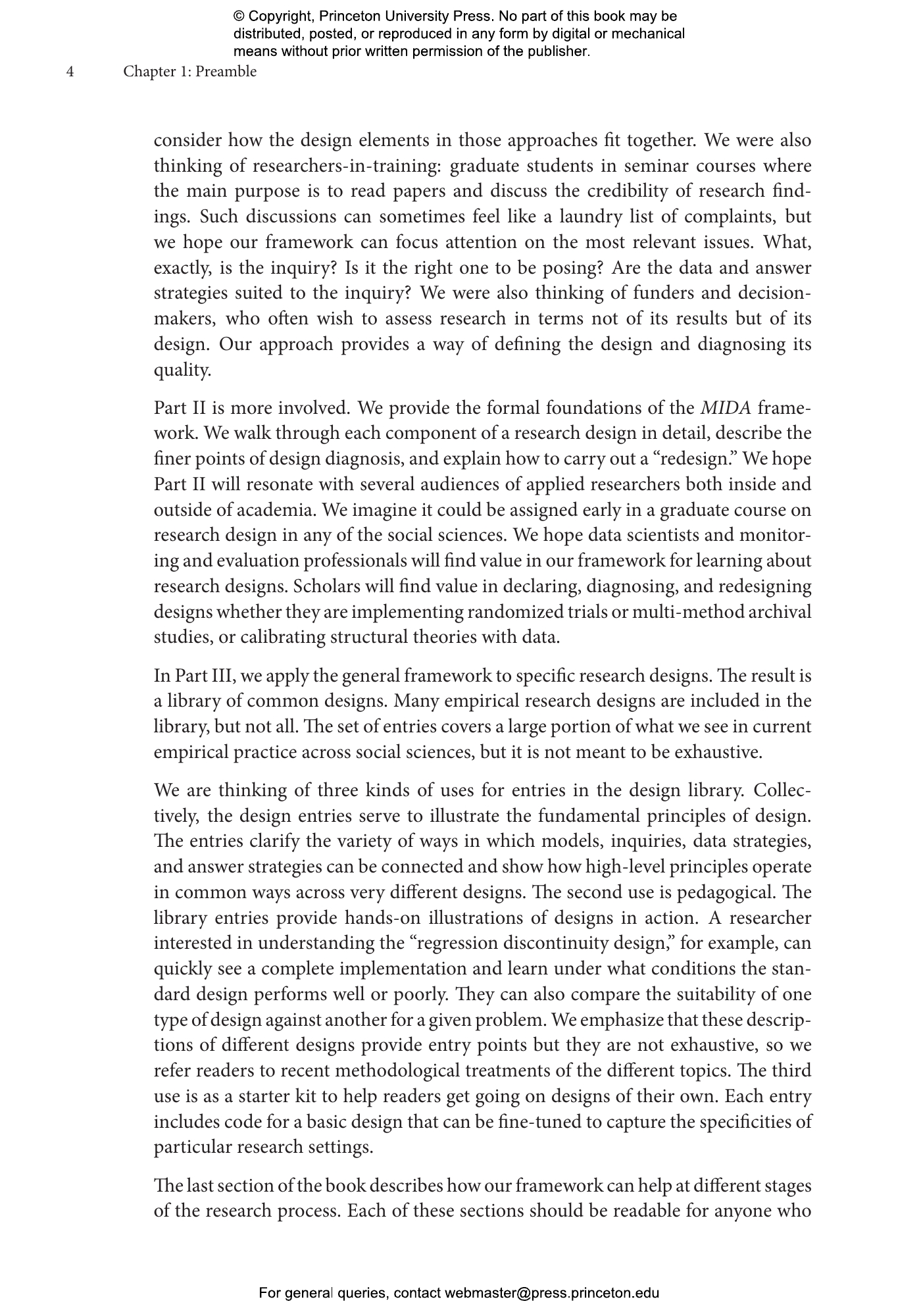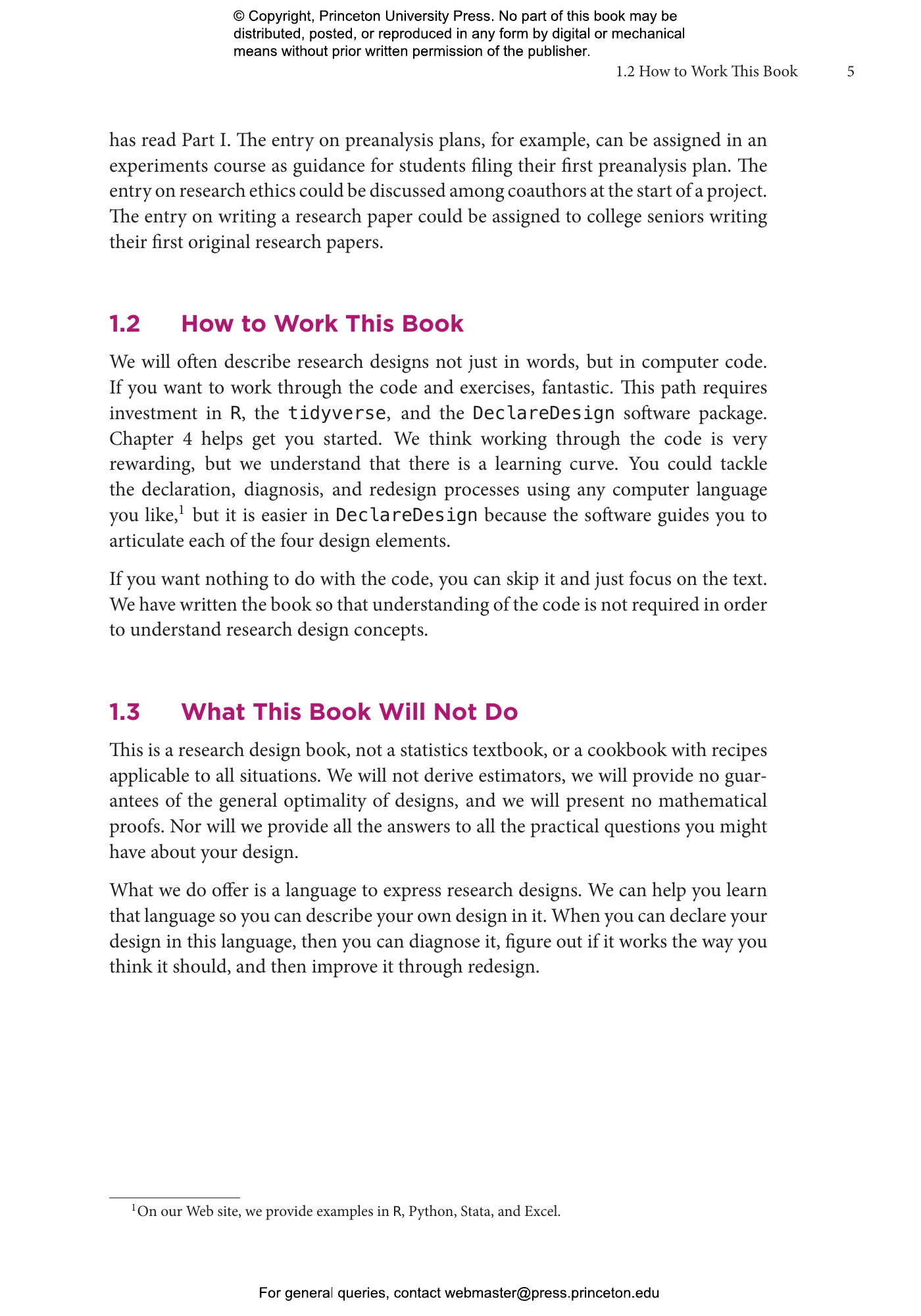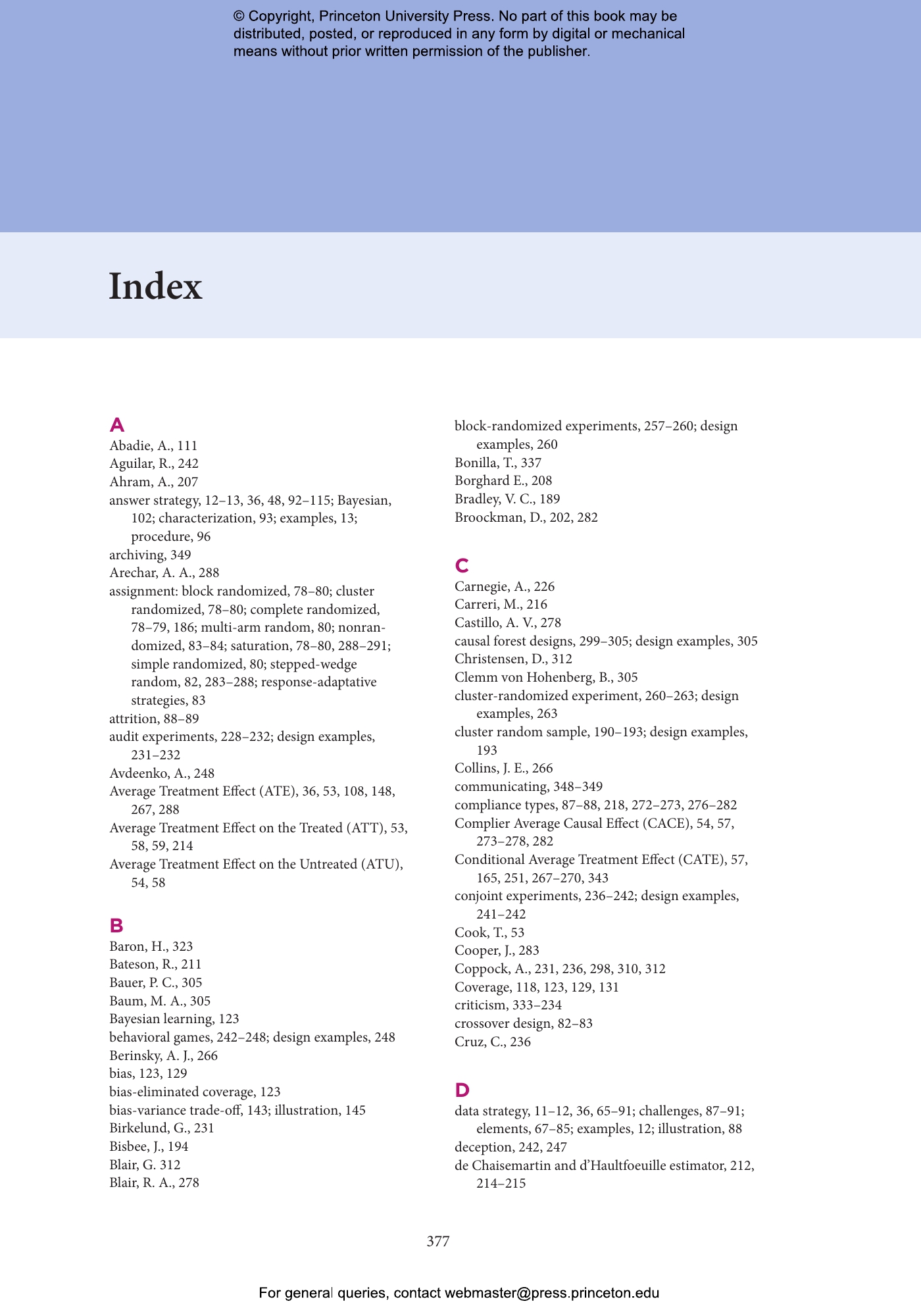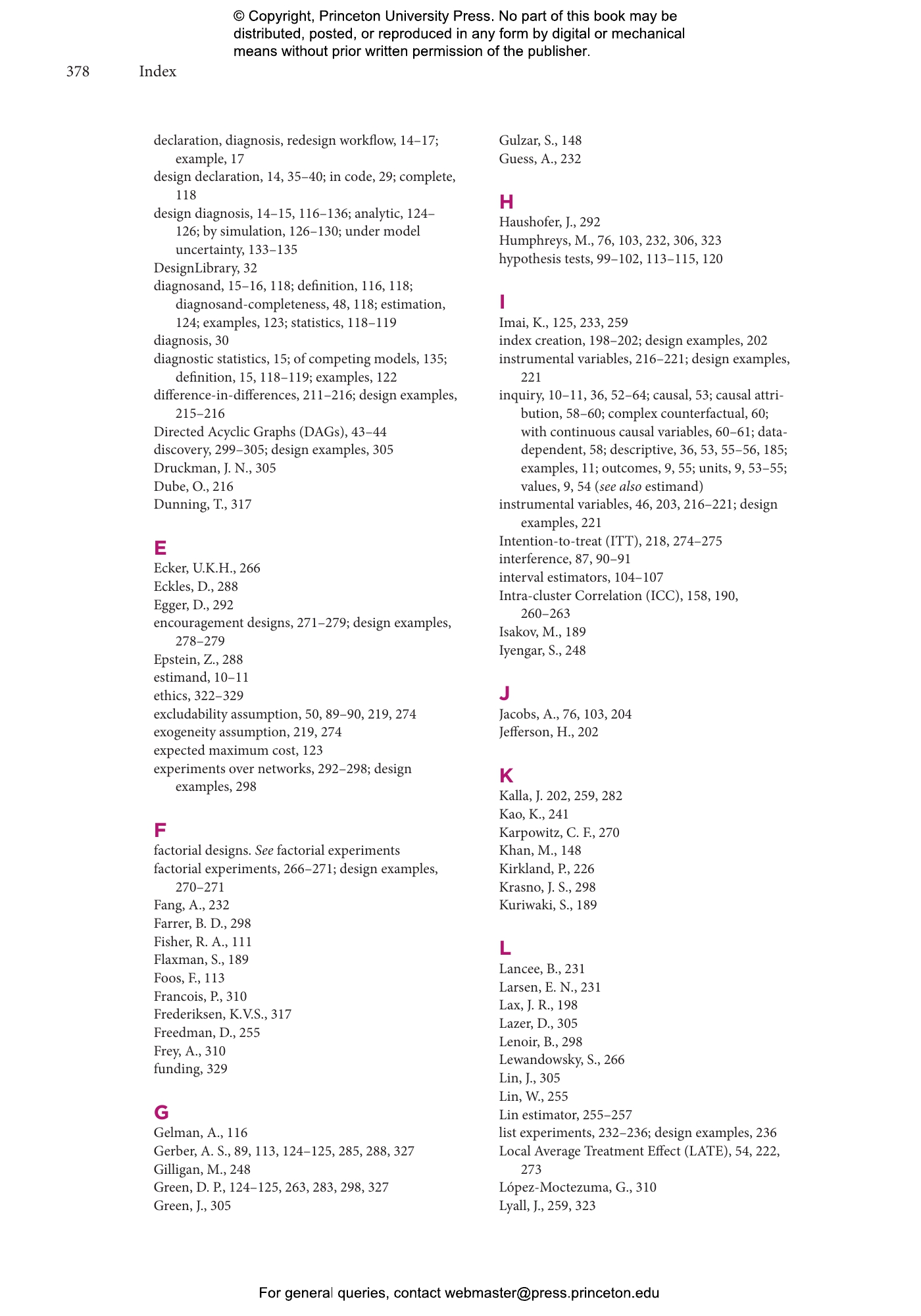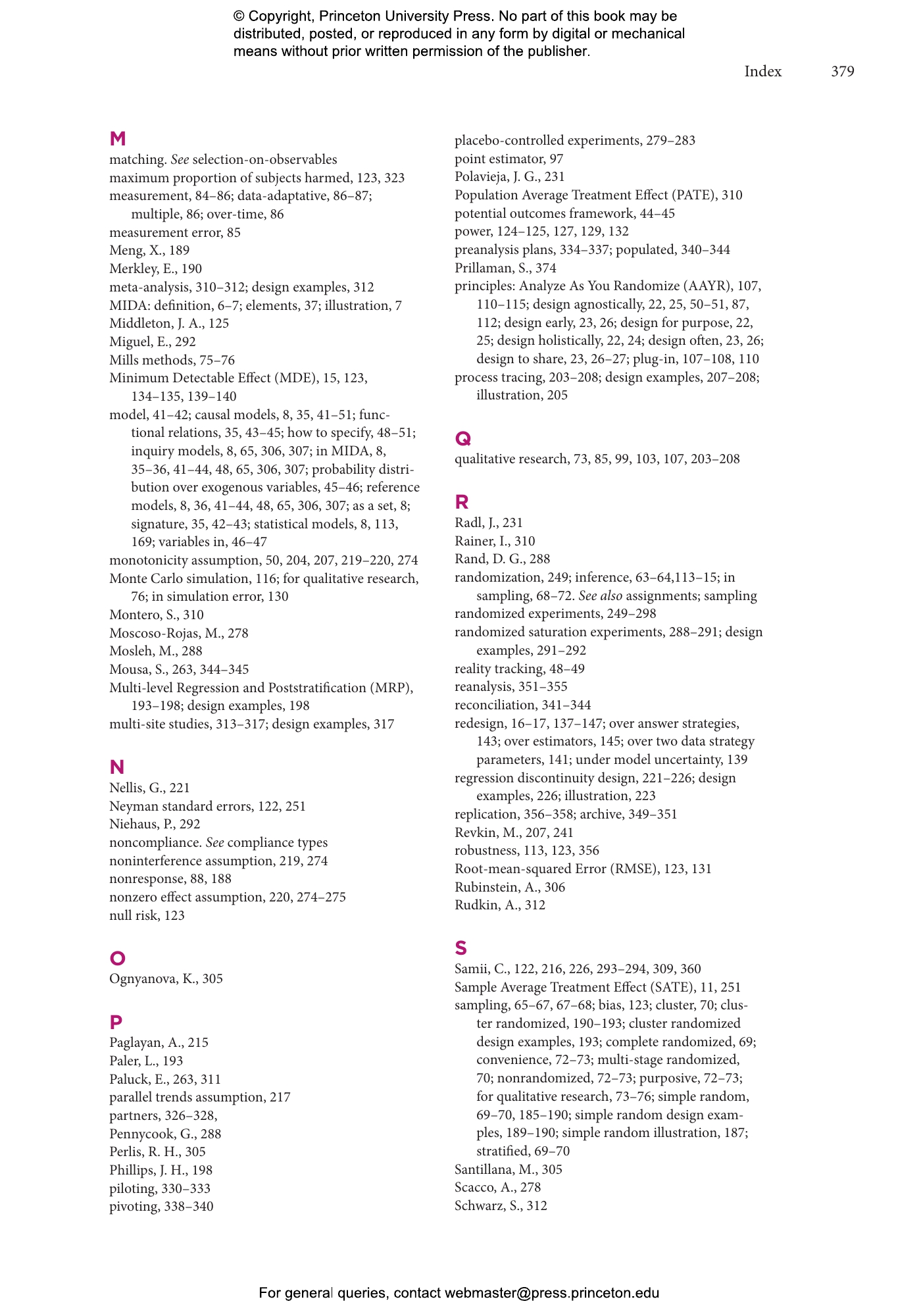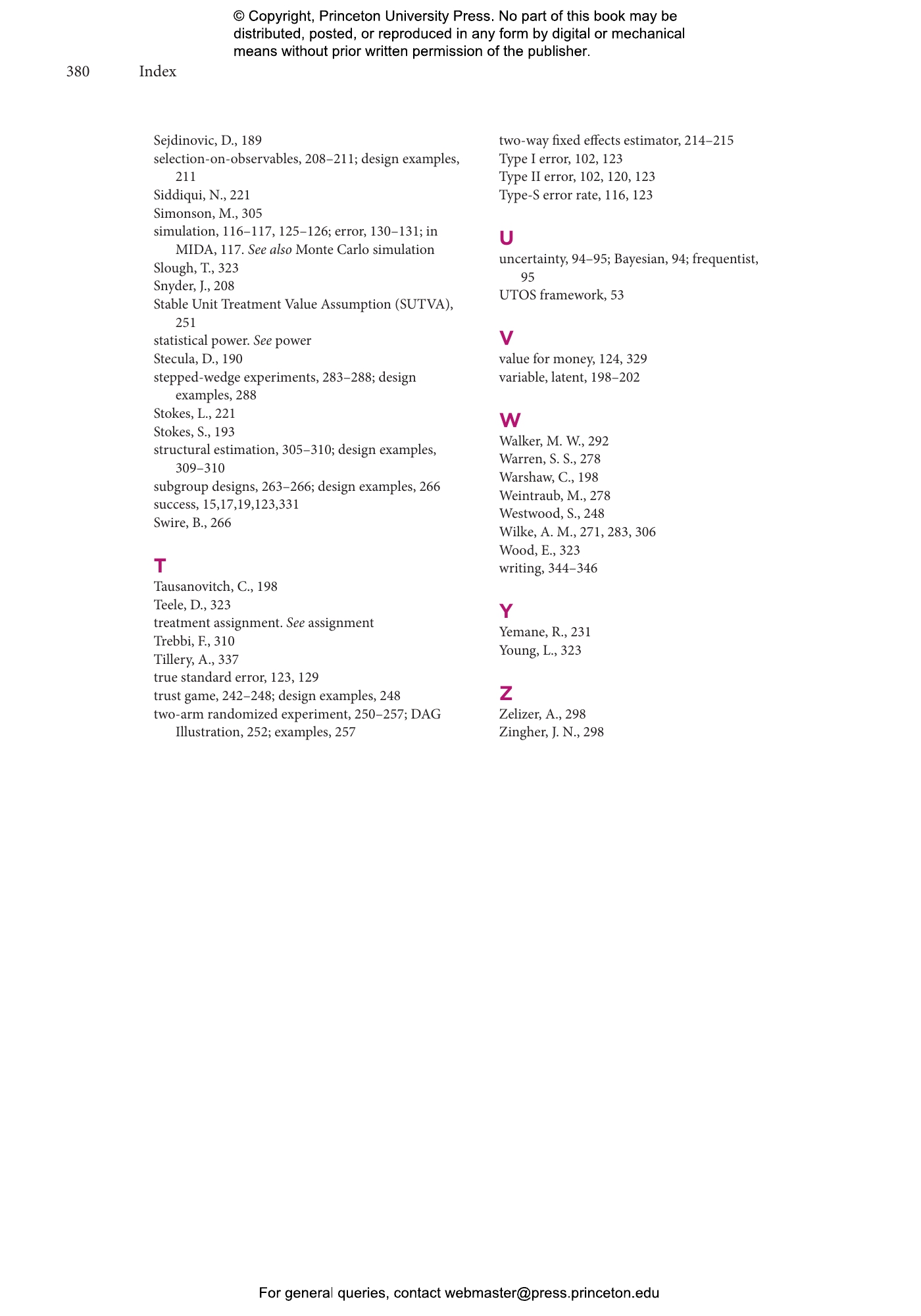Assessing the properties of research designs before implementing them can be tricky for even the most seasoned researchers. This book provides a powerful framework—Model, Inquiry, Data Strategy, and Answer Strategy, or MIDA—for describing any empirical research design in the social sciences. MIDA enables you to characterize the key analytic features of observational and experimental designs, qualitative and quantitative designs, and descriptive and causal designs. An accompanying algorithm lets you declare designs in the MIDA framework, diagnose properties such as bias and precision, and redesign features like sampling, assignment, measurement, and estimation procedures. Research Design in the Social Sciences is an essential tool kit for the entire life of a research project, from planning and realization of design to the integration of your results into the scientific literature.
- A must-have resource for current and future researchers who want to learn about the properties of their designs before they implement them
- Includes a library of the most common designs in the social sciences
- Provides a complete declaration of the canonical design for each library entry, describes the circumstances under which the design can be strong or weak, and explores the consequences of the choices under the research designer’s control
- Accompanied by online resources that can be used in conjunction with the book
- An ideal textbook for graduate students and advanced undergraduates
Awards and Recognition
- Winner of the Best Book Award, Experiments Section of the American Political Science Association
Graeme Blair is associate professor of political science at the University of California, Los Angeles. Alexander Coppock is associate professor of political science at Yale University. Macartan Humphreys is professor of political science at Columbia University and director of the Institutions and Political Inequality group at the WZB Berlin Social Science Center.
“Research Design in the Social Sciences is in a class by itself. This innovative book has something for readers at all levels of technical sophistication and research experience. The authors provide an ingenious framework for thinking about the process by which social science questions are posed and answered. This framework comes to life through lively examples and a well-documented software package that simulates key ingredients of the most widely used research designs in social science. It will become my go-to resource for both teaching and research.”—Donald P. Green, Columbia University
“In my research group, my students and I have adopted Blair, Coppock, and Humphreys’s process for evaluating and designing research. You might be surprised to find that the clarity and rigor of their process present useful constraints that boost your creativity.”—Betsy Levy Paluck, Princeton University
“Outstanding. This book will be a staple of graduate methods training not only in political science but also in related social science disciplines. The MIDA framework is innovative and the book’s clear and careful treatment of it is an important contribution.”—Daniel Rubenson, Toronto Metropolitan University and Executive Director of Evidence in Governance and Politics
“This book is powerful. Research design is one of the most important parts of social science, and in the past it has been more of an art than a science. In this wonderful book, Blair, Coppock, and Humphreys develop an important language to express research designs, which enables researchers to design better studies. This book will be helpful for people conducting their own research as well as those evaluating the research of others. I’ll be using this book to help me design my next study.”—Matthew J. Salganik, author of Bit by Bit: Social Research in the Digital Age
“Clear and engaging. The design library is wonderful, and MIDA will serve as an important common framework for students as they go out in their careers to pursue open and transparent science.”—Rebecca Wolfe, University of Chicago and former Director of Evidence and Influence at Mercy Corps
